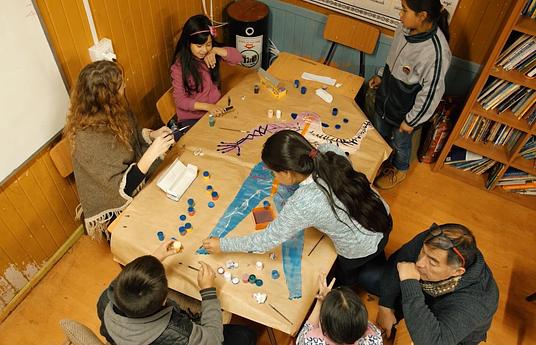What we do?
We offer new age programmes through our carefully designed research based curriculum. The curriculum is broadly divided into four modules –
A. Design Thinking for children -
“You cannot solve a problem with the same mind that created it. “- Albert Einstein
Design Thinking is a process applicable to all walks of life, creating new and innovative ideas and solving problems. Design Thinking for children is an approach to learning that focuses on developing children’s creative confidence.
Children engage in hands-on design challenges that focus on developing empathy, promoting a bias towards action, encouraging ideation, developing meta-cognitive awareness and fostering active problem solving. They learn collaboration rather than information consumption to address real world problems in hands-on ways. Through design, children learn that they have power to change the world.
Few examples of Design Thinking activities incorporated in our curriculum are - The Green School, City X Project, Design a Paper Table , Granny’s Smart Phone etc.
B. Art Integrated Learning
“The real product of art education is not the works of art, but the child.”
Art Integrated learning is a cross-curricular approach of learning in which children construct and demonstrate understanding through an art form. Art Integration is a research-based curricular strategy and numerous studies have supported its effectiveness. It is grounded in solid pedagogy in which arts is blended with academic subjects like Math, Science, Social science, English etc.
Few examples of Art Integrated Learning activities incorporated in our curriculum are as follows: Artful Maths: Abstract graphs, Line Zentangles, Circular mandalas, Travel Journals, Story book making, Visual minuting, Stop-motion animation etc.
C.Social Emotional Learning
Social Emotional Learning module aims at making children emotionally intelligent by teaching critical social competencies necessary for academic and life success such as: resiliency, self-management, and responsible decision-making skills. This aligns with CASEL's core competencies and covers topics such as – Self Awareness, Self-Management, Social Awareness, Relationship Skills and Responsible Decision Making.
Few examples of Social Emotional Learning activities incorporated in our curriculum are as follows: Face Your Fears, Emotional Wheel, Mindfulness, Art Journaling, Self Portrait etc.
D. Financial Literacy & Entrepreneurship
Financial literacy means that you can understand basic financial concepts and are able to manage your personal finances. Clearly, it’s a valuable life skill that can empower future generation to better manage their money and improve their quality of life. Financial
literacy for teens is an important tool to improve the financial capability of our youth and communities. When children are exposed to such knowledge; they would be in a better position to make monetary decisions in future. This can help them to avoid unnecessary debt and improve their financial well-being. Entrepreneurship isn’t just about starting companies. It is a skillset and a way of thinking that empower individuals, to innovate, create and discover their potential. Developing an entrepreneurial mind-set among the children channels their innate creativity. They create their own opportunities and tackle the problems they are passionate about solving.
Few examples of Financial Literacy & Entrepreneurship activities incorporated in our curriculum are as follows: The Cool Bank, Money Wise, Designing Board Games, iEntrepreneur Challenge etc.
Why we do it?
We live in an exponentially changing world in which success demands creativity and innovation. Simple facts are available at the click of a button but connecting ideas to draw new conclusions is not so easy. Thus, with a vision to make our children ready for the future, we started a mission to empower them with future relevant skills. So what are these future relevant skills?
“ Top 3 important skills for success at workplace: Complex Problem Solving, Critical Thinking & Creativity. ” – Future of Jobs Report by World Economic Forum
Skills like problem solving, decision making, perseverance, observation, emotional intelligence, collaboration, critical thinking etc. These are the skills that will really prepare our children for life beyond schools and equip them to succeed in their lives. We call these skills as ‘Habits of Mind’. Unfortunately, this is something which is rarely addressed anywhere in the current education system. Hence, we propose to explicitly woven these skills into the current system.



